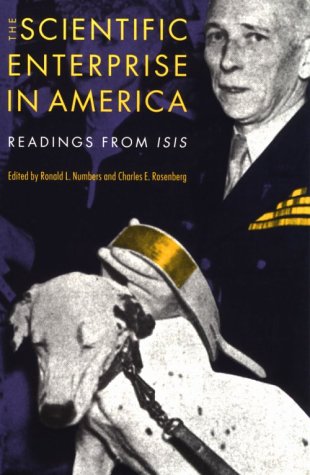Readings from Isis S.
1 total work
The Scientific Enterprise in America
by Ronald L. Numbers and Charles E. Rosenberg
Published 25 March 1996
This collection of 16 essays on the history of science in America ranges chronologically from the early 19th century to the 1990s. The essays reflect the scope of the discipline: from the pursuit of science in elite academic, industrial and governmental settings to science at home and in the movies. Such timely issues as women and science, the ethics of science, and the atomic bomb are examined. Contributions include Sally Gregory Kohlstedt, "Parlors, Primers, and Public Schooling: Education for Science in Nineteenth-Century America"; Margaret Rossiter, "Women's Work in Science, 1880-1910"; Philip J. Pauly, "The Development of High School Biology: New York City, 1900-1925"; Susan E. Lederer, "Political Animals: The Shaping of Biomedical Research Literature in 20th-Century America"; Stanley Goldberg, "Inventing a Climate of Opinion: Vannevar Bush and the Decision to Build the Bomb"; Daniel J. Kevles, "The National Science Foundation and the Debate over Postwar Research Policy, 1942-1945: A Political Interpretation of Science The Endless Frontier"; David A. Hollinger, "Science as a Weapon in Kulturkampfe in the United States During and After World War II"; and others.
These essays originally were published in "Isis", a publication of the History of Science Society.
These essays originally were published in "Isis", a publication of the History of Science Society.
